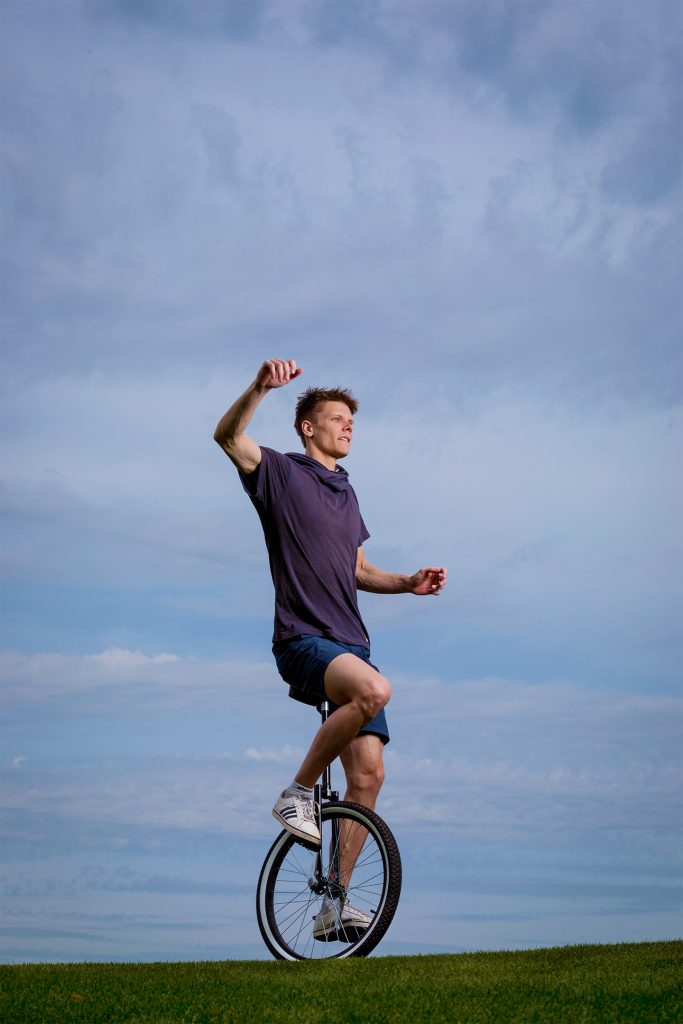Mika Manninen
On Health, True Wealth and the Pursuit of Happiness
By: Cynthia Adams | Photos By: Nancy Evelyn

It was a May afternoon, and Mika Manninen was seated in front of his mother’s piano, having returned just that week to Finland. A beautiful, meditative chord from Ludovico Einaudi floated upward as his fingers gracefully moved across the keys.
Whenever he grew tired in the run up to completing his doctorate in Kinesiology this May, he would leave whatever he was doing in the Ramsey building, walk over to the School of Music and play piano.
Before entering UGA in 2016 as a Fulbright Scholar, Manninen had never been to Athens nor to the South, although he has traveled widely. Now, he is reminiscing about years spent in the States, like an Alex de Tocqueville. “I think I’m going to miss the South,” he says. “The day to day encounters.” He thinks Southerners make an effort to be welcoming. “I think I have met some of the nicest and friendliest people here in the South.”
He points to American humor as a cultural point he admires.
He will soon be adjusting to yet another culture, having accepted a position in Ireland in Health and Human Performance at Dublin City University.
“I was extremely lucky to get this place. My girlfriend, Riikka, lives in Dublin. She travels to Finland and Norway for business.”
So, when Irish people ask him to describe what Americans are like, Manninen says he finds it difficult to condense his answer. “I don’t feel I can do it justice.”
The diversity and variety in America strikes him as important. So does an admirable sense of humor, he adds. What is different from Finnish culture is the work-identification shared by Americans, and resulting lack of free time. (At this writing, the United Nations again rated Finland the world’s happiest nation.)
The price of America’s can do, work oriented nature, he observes, may be less play and less happiness.
Finns trust their fellow Finns and Finnish institutions, especially education, he adds. Hence, when he learned that his eventual lead advisor, Sami Yli-Piipari, was Finnish, he was reassured.
“I had a few options when I was choosing my possible institutions. The advice I got from a former Fulbrighter in Finland was that when doing a Ph.D., the most important thing is probably the relationship with your advisor. I knew that there is a Finnish professor at UGA and that the program here was pretty well known. That was just a combination that seemed to be smart. I didn’t really know anything about Athens or UGA, so in a way it was a shot in the dark. However, I knew that I can trust my advisor (Dr. Sami; Finnish people trust one another in a way that is, in my opinion, a distinct feature of the nation) and that would be enough. So the choice was guided mostly by trust, and luckily I think I did make a good choice,” says Manninen.
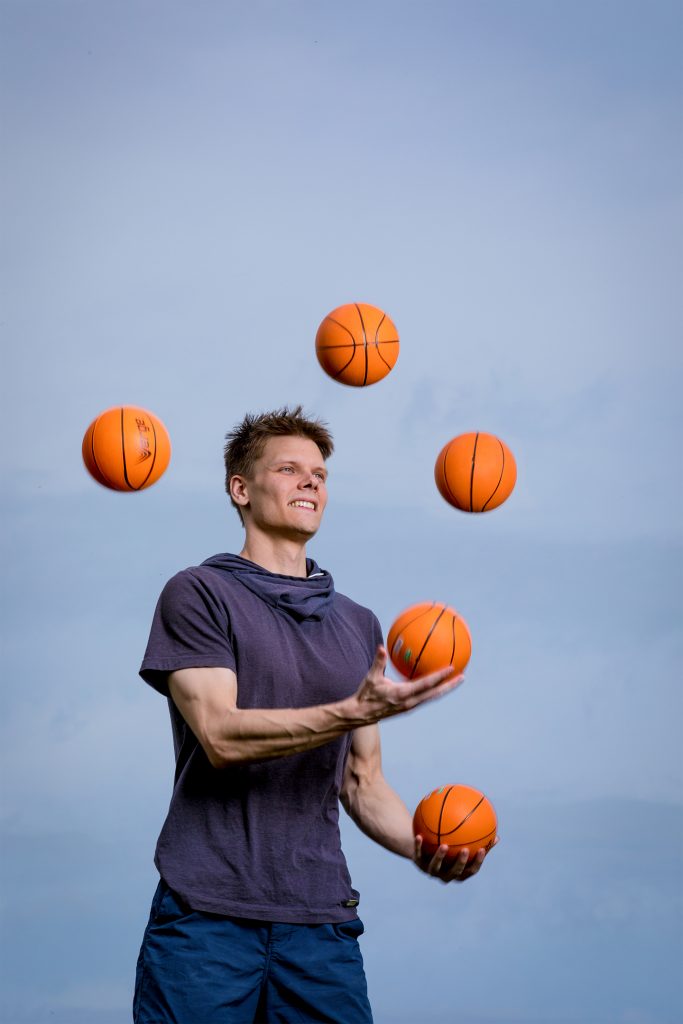
Manninen speaks Swedish, Finnish, English, Norwegian and is studying Spanish—all useful when he worked in tourism. “Although I enjoy learning just for its own sake, learning languages is more meaningful when you have a goal of communicating with people.”
In fact, he is intrigued by physical agility as well as mental abilities. As he reminds, physical activity is one of the “most robust behaviors a person can have.”
Manninen studied various areas of human performance and psychology at the University of Jyväskylä before teaching in Helsinki.
He worked and studied in Norway and Switzerland, even spending four summers teaching circus skills—something he had to quickly learn. “During my previous studies, I got to know a professional mountaineer and nature photographer from Hong Kong who had worked as a mountain guide at an exclusive summer camp in Switzerland.”
He scored the circus job thanks to a background in gymnastics and acrobatics. “And, for some weird reason, I was good at unicycling also,” he explains.
“One of my best friends was also very skilled in circus skills, which was helpful. In short, my friend and I just practiced a lot for three months before going to the camp—juggling, diabolo, slack lining, flower sticks, and acrobatics.” He would practice for hours daily.
“But I must emphasize I could do it in front of kids but not to perform. If you see circus professionals, it’s like seeing professional musicians—so much repetition and discipline. I can do the basics and a bit more than that.”
Does he think these things made him a more nimble thinker? Does motor skill learning impact his cognitive skills? “The researcher in me wakes up with skepticism,” says Manninen.
Potentially maybe, he answers cautiously. “I don’t really know. But I will say this. One reason why I like skills that have to do with nimbleness, is you are not afraid to learn different things. As an adult you stick with your routine and habits. But with (mastering) skills, with that mentality, you think, I could try that.”
Manninen raises an interesting insight into his homeland. “Finland was one of the poorest countries in Europe after the second World War. A lot of land was lost and a lot of changes had to be made. My parents don’t brag about what they have done. They built the country up. You do the work.”
Mika Manninen has taught circus skills to campers in Switzerland, speaks multiple languages, plays piano, and likes to code. He has worked in tourism and as a high school teacher. “I am not a believer in you go to work and are serious from 8-5,” says Manninen. A humorless life, he contends, “could be difficult.” Perhaps his free spirited ethos owes to his native Finland’s status as the happiest place on Earth. Or, perhaps it is just Mika being Mika.
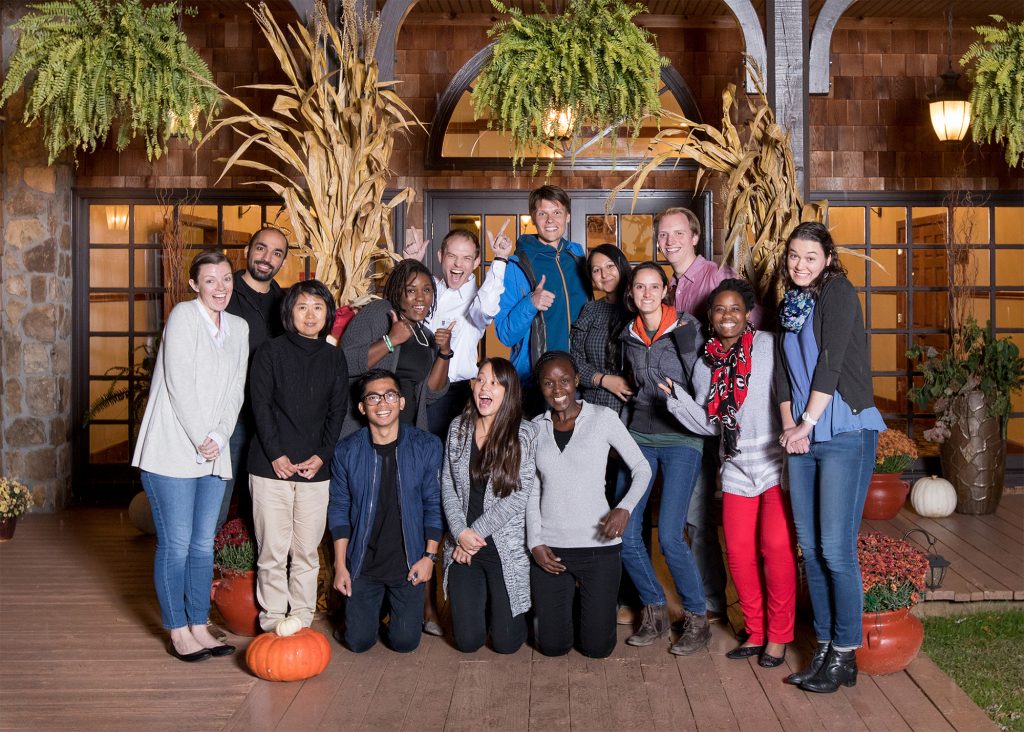
Manninen, center, top row, at Emerging Leaders in Dillard, Ga., last October.
So he flung himself into whatever he did, even teaching campers. “I have been teaching at this camp for three summers since and it is one of my favorite places in the world. It is in the Alps, and the staff and the campers come from all over the world (well, only the rich part I am afraid..). For the most part, my job has always just been teaching circus skills from the morning until the evening. Sometimes it got a little repetitive but all in all, it is one of the greatest jobs I have ever had.”
Manninen, who took a circuitous route to doctoral studies, was partly distracted by a multitude of interests and ideas about what constitutes the good life.
“In fact, a lot of times I practice seemingly unnecessary things just because I want to detach myself from the mindset that everything you do should be something that validates yourself in front of eyes of others, gets you ahead, gives you recognition or money, etc.”
Feeding that awareness was Manninen’s teaching experience. When he first applied for a Fulbright he was turned down. Before reapplying he taught for two years.
“I am a teacher by training, and during the two years that I worked as a high school teacher I really started to see the importance of education and having a broad sense of the world and everything that it holds. In a way, I am always trying to educate myself and by that understand the world a little bit better—not just from my own little perspective.”
“Pretty much all the schools in Finland are public, and I mainly went to just very regular schools,” says Manninen. “In fact, the best aspect of the Finnish education system is probably the fact that all the schools are very similar (at the time I finished the 9th grade, Finland dominated all the PISA results of that age group, but lately the Asian system has become number one).” PISA is the Programme for International Student Assessment, ranking math, reading and science scores.
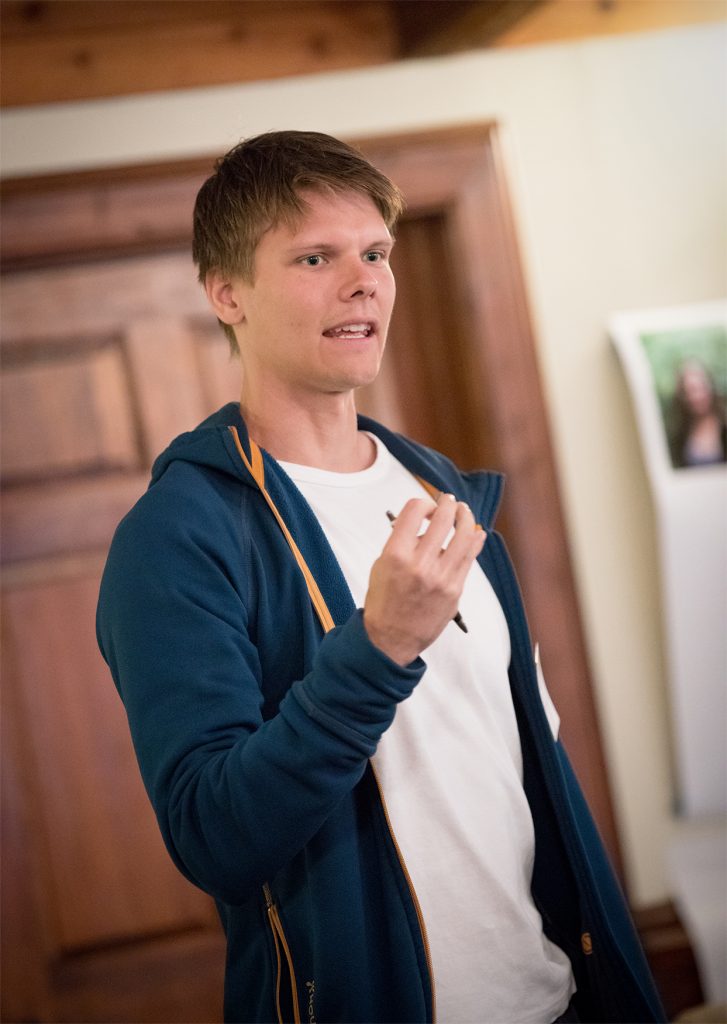
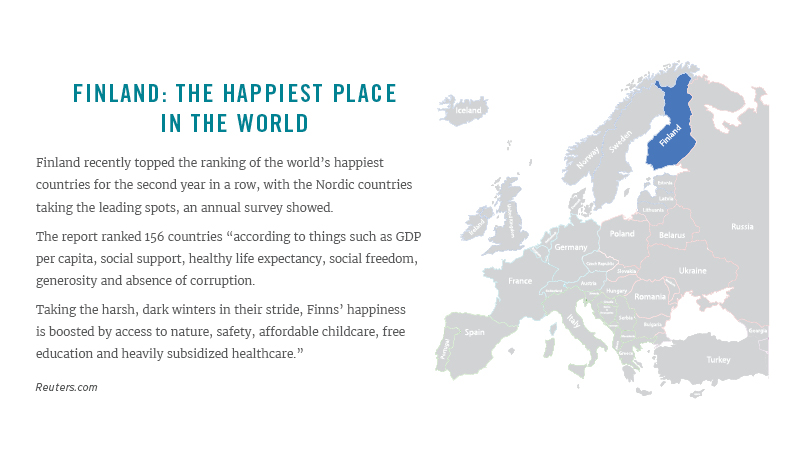
He discusses how American schools differ from Finland.
“The whole society in the United States is obviously organized quite differently, and the dynamics between the private and public sector are very different and affect this. I would say that the best schools here in the U.S. are probably ahead of the best schools in Finland. The comparison between the levels of average education might give different results, however. That said, it is not evident to me how the level of education should be measured. Here and increasingly also in Finland, I have seen a business like approach to improve the schools—everything should be measured, benefit the GDP, and the teachers’ held accountable for student learning. Maybe this leads to some good results, but I am not convinced that the business like approach is good even in the business world.”
Finnish teachers are required to hold a master’s degree, Manninen adds.
“Measuring and accountability of teachers might boost certain numbers, but I personally think that the quality of education is ultimately reflected in the function and well-being of the society and its individuals in general. The impact of education should last the whole life and probably cannot be measured very reliably only with standardized tests.”
Manninen noticed an American emphasis on social and presentation skills. “I find even small (American) children to be very effective communicators.”
Another difference of note, he finds, is that Norway, Finland and Switzerland have been progressive in their interest in the natural world, and also in advancing social issues. “Norway and Finland are probably trying to advance gender issues slightly more than Switzerland, which has perhaps a little bit more weight in that respect from their traditions. In all three countries, nature is a big part of society, and people probably have quite significantly more free time compared to the U.S.”
He is quick to stress that “I do not have a perfect understanding of the entire South. I would maybe say that people here in the U.S. have their identity built more in terms of their jobs compared to all of Europe. The working hours are long and the holidays short. I do really admire the responsibility that some people take in here. There is no whining, and others are not blamed in public (at least not in my experience). I have taught undergraduate students here, and they have all been fantastic.”
Do the Finnish have a good sense of humor? He thinks the Americans have a greater sense of humor in everyday interactions than in Finland.
“I wonder how much language influences this? Is it that English is such a big language, and allows for more humor? I think people in America are more expressive with emotion; subtle emotional experiences play into that.”
On the other hand, a lack of free time affects American’s sense of play.
“In general, people probably should play a little bit more everywhere. For me getting past the dark winter in Finland always required a healthy dose of fun and games.”
It may have earned Finland their enviable happiest place ranking
Will Manninen still teach circus skills in Switzerland this summer? “I guess I could go there as a 60-year-old,” he deadpans.
The Fulbright Program
According to Wikipedia, “the Fulbright Program is one of several United States Cultural Exchange Programs whose goal is to improve intercultural relations, cultural diplomacy and intercultural competence between the people of the United States and other countries through the exchange of persons, knowledge and skills. It is one of the most prestigious and competitive fellowship programs in the world. Via the program, competitively selected American citizens including students, scholars, teachers, professionals, scientists and artists may receive scholarships or grants to study, conduct research, teach, or exercise their talents abroad; and citizens of other countries may qualify to do the same in the United States of America. The program was founded by United States Senator J. William Fulbright in 1946 and is considered to be one of the most widely recognized and prestigious scholarships in the world.The program provides 8,000 grants annually.”
Mika Manninen was a 2016 Fulbright scholar.
Wikipedia
